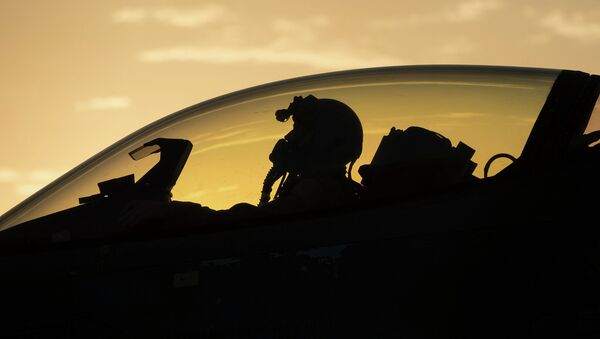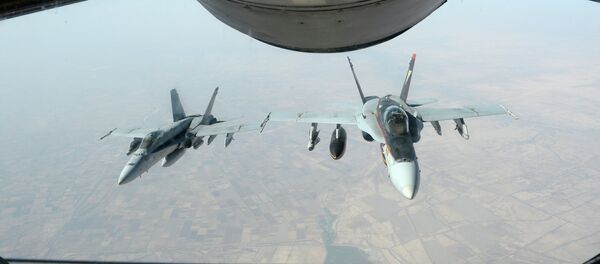In a joint piece for The Atlantic magazine, Biddle, an adjunct senior fellow for defense policy at the Council on Foreign Relations, and Shapiro, professor of politics and international affairs at Princeton, lay out why the war against the jihadist group isn't likely to end in the neat and clean way that American officials might have hoped it would.
"We have a lot of evidence on wars like this and how they typically end. But it's not a very encouraging story. The Islamic State threat is likely to persist, in one form or another, for a long time. In the meantime, we're going to be stuck with a policy that amounts to containment and damage limitation, whose shortcomings will frustrate many Americans," the experts note.
"When they do end, it's rarely because an empowered, victorious army marches into the enemy capital, pulls down the flag, and governs a newly stable society."
Like neighboring Syria, Iraq, the authors suggest, is likely to remain embroiled in civil conflict because, as is typical in civil wars, there are outside interests which prefer instability and chaos to a decisive victory for their opponent.
"Civil wars like today's conflict in Syria and Iraq are often complex, multi-sided proxy conflicts in which a variety of local combatants have ties to outside backers who fund, equip, train, and advise allies' forces. This outside support enables fighters to weather setbacks and hang on in the face of military adversity. Outside backers usually have geopolitical reasons of their own to support local proxies."
Unfortunately, "for most such backers, a stable postwar state under rivals' influence often looks worse than continued chaos –so outsiders also usually have incentives to keep the pot boiling by supporting guerilla resistance if their proxies lose outright control of territory."
This, the analysts argue, is when "bargaining space for negotiated settlements opens up, and peace talks can finally end the fighting."
"Real exhaustion of this kind could take a long time in Syria and Iraq, and leave a lot of profound damage in its wake. To date, Iran, Russia, Saudi Arabia, the United Arab Emirates, and of course the United States, among others, have all supported proxies in Syria and Iraq. This list includes countries with some very deep pockets. Iran and Saudi Arabia, in particular, each see the war in Syria and Iraq as essential to prevent the other from seizing a geopolitical advantage in a regional conflict for survival."
"Russia has been willing to deploy its own troops to prevent its ally, Syrian President Bashar al-Assad, from falling. Local allies of all these parties have suffered reversals, but have often been bailed out, given the stakes their backers see in the war; for any major combatant to be defeated will thus require a degree of war-weariness not yet apparent from any of the major outside benefactors."
Daesh, Biddle and Shapiro suggest, "is more self-reliant than many contestants in this conflict, funding its war effort mainly by taxing economic activity in areas it controls."
"The Islamic State," the authors say, "lacks the kind of outside benefactors that fuel Assad's or Jabhat al-Nusra's or the Iraqi government's war efforts" (apparently, they do not want to call out the US-allied Gulf states, plus Turkey, whose financial and logistical support was vital to the terror group's rise).
"In late November 2015, the group slashed its fighters' salaries in half, reporting in Western media suggests its revenues have plummeted, and the group has reportedly tried to create cash through exchange-rate manipulations."
"The real problem, however, runs much deeper than just the Islamic State," with the wars in Iraq and Syria pitting "a host of groups against one another, many of whom are almost as dangerous to US interests as the Islamic State."
If the terror group falls, the analysts note, "it would just open the war to its next phase, in which Islamic State's rivals compete for the status that group had enjoyed before them."
Up to this point, "real US leverage to bring about a real end to the war – and actual realization of American interests in that war – is distinctly limited. None of the proposals popular in today's Washington debate offer any meaningful prospect of achieving this."
Ultimately, Biddle and Shapiro note, "if this war plays out the way so many others have, its end will come not through an allied offensive to conquer a capital city, but through the mutual exhaustion of multiple actors with multiple, often wealthy outside benefactors. This will eventually happen – but it will likely take many years yet."





